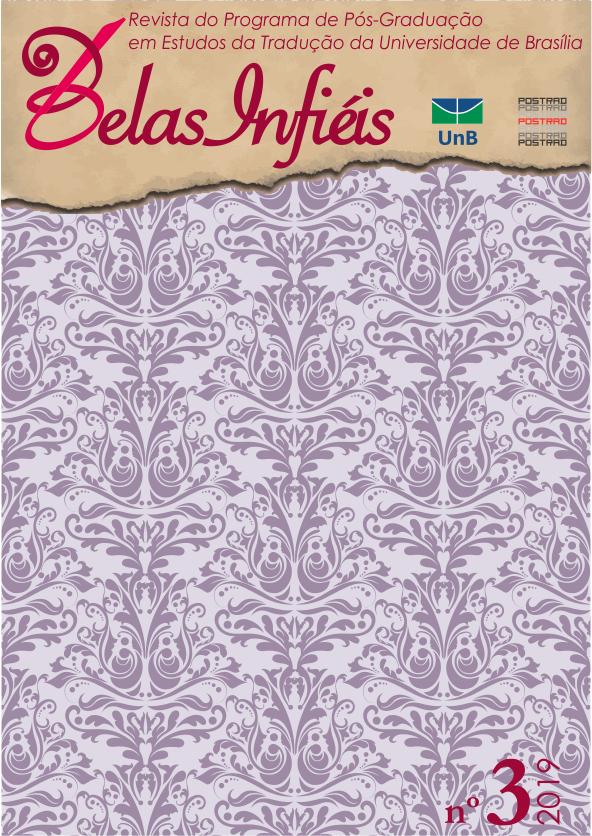Translating authors in the Vaga-Lume series: the cases of Lúcia Machado de Almeida and Marcos Rey
DOI:
https://doi.org/10.26512/belasinfieis.v8.n3.2019.23175Keywords:
Vaga-Lume Series. Cultural Mediation. Cultural Imperialism. Lúcia Machado de Almeida. Marcos Rey.Abstract
The purpose of this paper is to examine the work of the authors Lúcia Machado de Almeida and Marcos Rey, especially in regard to the use of foreign language and to mentions to other countries and cultures, in their narratives O escaravelho do diabo (1973) and O mistério do cinco estrelas (1981), respectively. Both are crime-related and aimed at a young audience; they were published with a notable commercial success in the famous Vaga-Lume series, by Editora Ática, traditionally adopted for literature courses in Brazilian schools. Almeida and Rey were also translators of children's literature, having published translations of books and even comics ”“ in the case of Rey ”“ for young readers in the 1960s and 1970s. The hypothesis explored here is that they act as "self-translators" in these works, by proposing solutions in Brazilian Portuguese for foreign terms that they themselves use. It is a notion of "self-translation" different from the usual one, since it refers to the concern to clarify in the text terms used by the authors themselves. Another hypothesis presented here is that, by portraying a myriad of foreign characters and their accents and languages, both writers acted as cultural mediators between what comes from abroad and the Brazilian young audience. In addition, their narratives are also punctuated by frequent exalting references to so-called developed countries, which may reinforce asymmetries in the perception of the international order (COHEN, 1976), relegating Brazil and Latin America to supporting roles in a world led by the United States and Western Europe. Studies on foreign language teaching in Brazil in the 1970s and 1980s (LEFFA, 1999; NICHOLLS, 2001), as a means of approaching the context in which the books first appeared, and the thesis of cultural imperialism (TOTA, 2000; HARVEY, 2005; SAID, 2011) provided support for the verification of these hypotheses.
Downloads
Downloads
Published
How to Cite
Issue
Section
License
Given the public access to this journal, the texts are free to use but requires the recognition of the original authorship and initial publication in this journal to be properly stated.
 The journal allows the use of works published for non-commercial purposes, including the right to submit the work to publicly accessible databases. Published contributions are the sole and exclusive responsibility of the author(s).Â



















